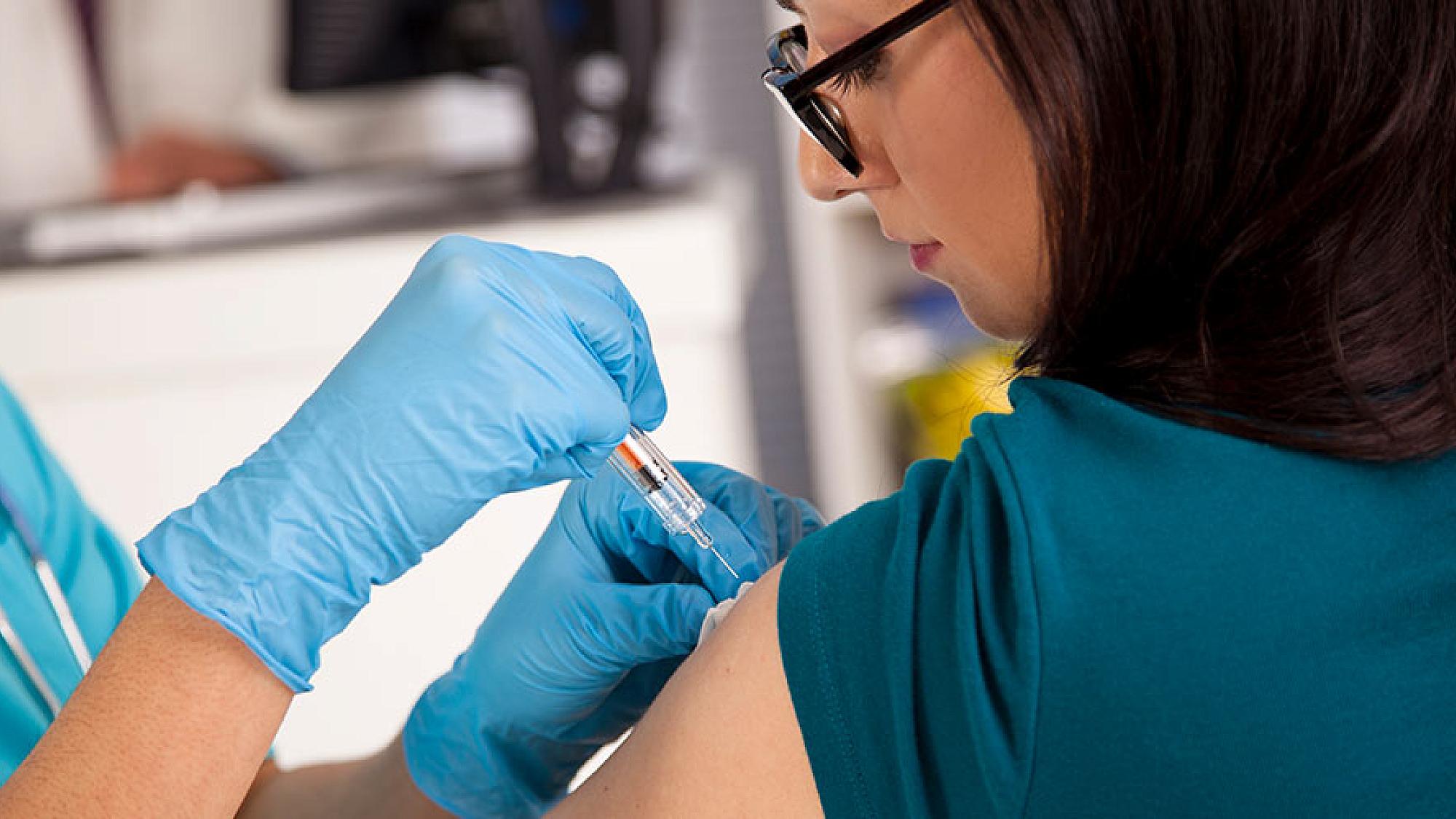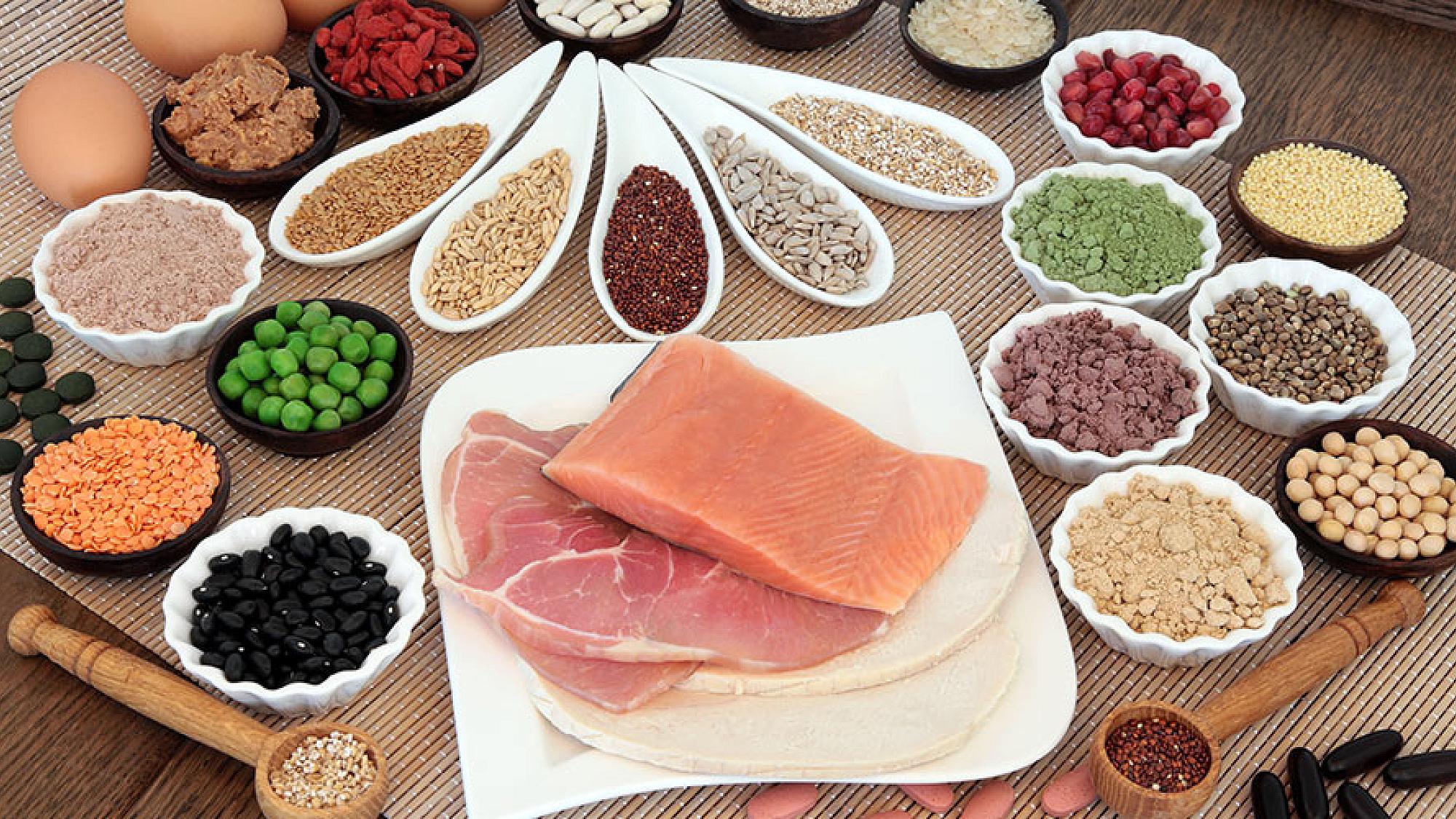
Myths About Cancer & Disease
Myth #1: Bras cause breast cancer
Has your grandma, friend, or aunt told you not to wear a bra because bras cause cancer?
We have good news for you: Wearing a bra does not cause breast cancer.
What can you do to lower your chances of getting breast cancer? Stay a healthy weight and avoid alcohol. Women who are obese or drink a lot of alcohol have a higher chance of developing breast cancer.
Getting mammograms every year after you turn 45 is a proven way to detect breast cancer early and stop it from spreading.
Myth #2: There's nothing I can do to prevent cancer.
Luckily, having a healthy lifestyle and getting regular cancer screenings can help prevent some of the most common types of cancer. For example, Pap smears and colonoscopies help doctors find and remove pre-cancerous cells in your cervix and colon—two very common types of cancer.
Keeping off extra weight can help prevent cancer, too. If you’re just 11 pounds heavier than you were in high school, your chance of getting cancer increases.
How can I prevent cancer?
Stay at a healthy weight and have regular cancer screenings to lower your chance of developing cancer.
You should also get a Pap smear every three years if you’re between 21 and 29 years old. If you’re between 30 and 64-years-old, you should get a Pap smear every five years combined with a test for human papillomavirus (HPV), which is a type of disease you can get from having sex.
Myth #3: You can't get heart disease until you're older, and heart disease mostly affects men anyway.
Many women dangerously believe they don’t have to worry about heart disease until they reach their 60s, even though heart disease can strike during the 50s and even 40s.
One in three women in the US will die from heart disease. In fact, each year, more women die from heart disease than men. Type II diabetes, obesity, or hypertension (high blood pressure) can increase your chances of developing heart disease.
How can women prevent heart disease?
The best thing you can do to lower your chances of getting heart disease is to start making lifestyle changes now. Don’t smoke. Monitor your blood pressure and blood glucose (sugar) levels to stave off diabetes. You can also schedule an appointment with a cardiovascular specialist to learn what you can do to keep your heart healthy.
Myth #4: Only Men Get Kidney Stones.
What can be as painful as childbirth? Kidney stones are small, hard bits of minerals that pass through your urinary tract, causing vomiting and severe pain in your back, side, or pelvis.
Unfortunately, women can get kidney stones: One in 12 women suffers from them. A poor diet also increases your chance of getting kidney stones.
What can you do to prevent kidney stones? Avoid salty foods, drink plenty of water, and stay at a healthy weight. You can also talk to a women’s health provider for other recommended diet and lifestyle changes that help prevent kidney stones.
Myths About Pregnancy
Myth #5: Some foods (like soy or yams) will help me get pregnant
Not being able to get pregnant can be a heartbreaking and exasperating experience. 12 percent of women struggle to get pregnant.
But eating specific foods, from chocolate to goji berries—or anything else—will not help you conceive.
If you’re trying to become pregnant, the best thing to do is see a gynecologist who will perform tests and determine if you need medications or hormone therapy to make it easier for you to conceive.
Myth #6: I just had a baby but I feel down.
The “baby blues” (feeling down or not enjoying what normally makes you happy) are very common. But feeling sad doesn’t make you a bad or neglectful mother. Three in four women will experience some type of depression after giving birth.
If your depression lasts more than a few weeks or gets worse, you should see a doctor. You might have postpartum depression, a serious illness that needs treatment.
An OB/GYN will talk with you to help determine if medication or other treatments can help you feel better.
Myth #7: New moms should rest for a month after giving birth
New moms should get the rest they need after giving birth. But do new moms need to stay in bed and away from friends and family … for a month? Cultures all over the world have different practices for new moms.
How much rest do you need after giving birth?
After giving birth, most new moms will need at least of couple days of full rest. But, it’s important to get out of bed and walk around as soon as you can. Movement will help prevent dangerous blood clots from forming.
Second, don’t wait a full month to return to your OB’s office. Be sure to see your OB for follow-up two weeks after you give birth, especially if you’re feeling blue (anchor link to myth #4) have bladder problems, or have pain.
Myths About Sex
Myth #8: Cranberry juice cures UTIs (Urinary tract infections)?
Is cranberry juice good for UTIs?
It’s true: Cranberry juice is tasty. Unfortunately for cranberry juice lovers, the juice won’t cure UTIs—bacterial infections that cause frequent, burning urination and back and pelvis pain.
Cranberry juice may prevent bacteria from attaching onto the bladder’s walls, but researchers are still studying this question.
If you get UTIs often, consider making an appointment with a gynecologist who can prescribe antibiotics and suggest treatments to reduce your chance of getting them.
Myth #9: I'm Not Interested in Sex. Something Must Be Wrong With Me.
Having a low sex drive, sometimes called hypoactive sexual desire, affects many women. Hormone changes and stress can affect how often (and if) you want to have sex.
But the truth is, there’s no “right” amount of sex you should be having. If you want to be in the mood more often, a doctor can help you determine if medications or lifestyle changes can boost your desire.
Myth #10: If I Don't Have Any Symptoms, I Must Not Have a Sexually Transmitted Infection (STI).
Many sexually transmitted infections (STIs) including gonorrhea and HPV can have no symptoms. Three in four women will have no symptoms for chlamydia.
If you’ve had unprotected sex, the best thing you can do is get yourself tested for STIs—even if you don’t think you have one.
Women’s Health Services offers confidential testing for sexually transmitted infections.
Know The Facts
There you have it: Some of the top women’s health myths, debunked. Being your healthiest you isn’t so hard. Eat well, exercise, don’t smoke, and be sure to get regular cancer screenings.
From Our Specialists
5 for Life
A big part of staying healthy is detecting diseases early. We make it easy for you to get lifesaving tests for heart disease, breast cancer, cervical cancer, skin cancer, and colon cancer in one convenient visit.
Pregnancy Myths & Misconceptions
You've heard the old wives tales about what you should and shouldn't do while pregnant. But can you separate fact from fiction? Dr. Kirtly Jones weighs in on the truth behind some well-known pregnancy myths.
Flu Shot Facts & Myths
Flu shots are regularly recommended by doctors now. But did you know that what makes up the shot changes every year based on what strains of flu are most likely to be around?
Myths About Protein & Nutrition
You want to learn more about protein, but after some research on the Internet you're just confused. How much protein do you really need? Do you need more if you're trying to build muscle?
See a Women's Health Provider
Schedule an appointment to see one of our women's health providers today. Call 801-213-2995.




